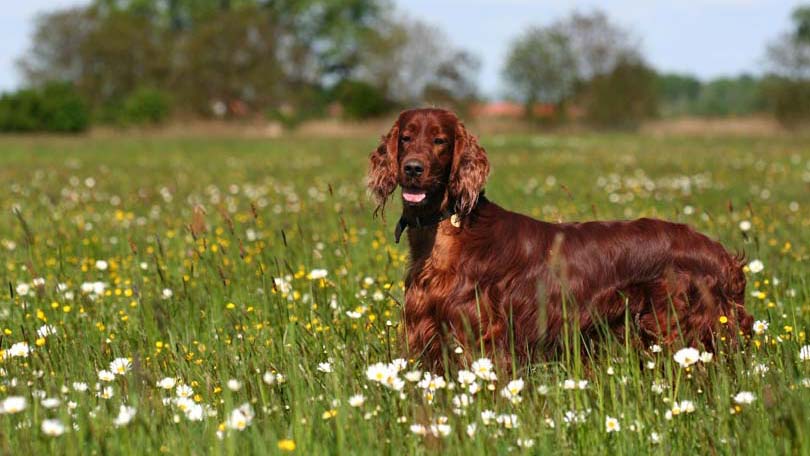
Kennel cough in dogs is a common and annoying condition that can affect any dog. Fortunately, despite the severe-sounding cough the condition produces, in most cases it is a self-limiting disease, and can frequently run its course without medical intervention.
Known also as bordetella or canine infectious tracheobronchitis, kennel cough is so known due to it’s high frequency of occurrence in any facility that houses dogs, such as kennels and shelters. However, the name is often misleading, as a dog can develop kennel cough without ever having set foot in a kennel, shelter or other facility due to its highly infectious nature.
Kennel cough is caused by a combination three major infectious agents- the bacteria bordetella bronchiseptica, and the viruses parinfluenza and adenovirus type II. Usually these infections work together, causing damage to and irritating the lining of the dogs’ trachea and upper bronchii. While the damage done to the tracheal lining is in most cases very mild, nerve endings in the area become exposed to the air passing through the trachea, causing irritation and discomfort.
The spread of kennel cough is similar to the spread of the common cold in humans. The organisms can become airborne after being expelled by a coughing dog, carried in the air in microscopic particles of dust and water vapor. A susceptible dog must only breathe the infected air to take in the organisms, where they attach to the warm, moist lining of the trachea and upper airway to live and replicate, damaging the cells they infect.
As it can be spread airborne, kennel cough is extremely common in any place where dogs are being confined together in a single environment- boarding kennels, animal shelters, dog shows- any place where there are many dogs together, there is likely to lurk kennel cough.
In addition, simply coming into contact with a dog that has been or is currently infected can transmit the pathogens. Dog parks, doggy day care, groomers etc- many times an infected dog may be spreading kennel cough unbeknownst to anyone. For this reason, any dog that ever spends any time with strange dogs should be vaccinated as a precaution against developing kennel cough.
The hallmark symptom of kennel cough in dogs is a repeated dry, hacking cough, often followed by retching. The cough may appear suddenly, but then occur frequently throughout the day, especially anytime the dog gets exited, exercises, or any pressure is applied to the throat/neck area (such as walking on a leash). Many owners become terrified when hearing a dog with kennel cough for the first time, as the cough can have almost a ‘honking’ quality to it, and the dog may frequently be interrupted from resting or eating for a severe coughing fit.
The good news about kennel cough is that it almost always sounds much, much worse than it actually is. In fact, most dogs with kennel cough will continue to eat, drink, have a normal energy level, and appear almost completely normal, aside from the annoying, dry cough. In these dogs that feel fine despite their cough, often no medical intervention or medication is necessary. The disease normally lasts between 7-14 days, and left alone it will run it’s course and the dog will fully recover.
Despite the frequent low-level nature of the disease, some dogs, especially dogs under stress or those that have poor immune systems may develop more serious strains or levels of infection. Without medical treatment, these dogs can develop a serious, life-threatening pneumonia due to the bacterial infection.
A veterinarian should examine any dog that appears to have kennel cough. The symptoms of kennel cough are can also be attributed to several other, more serious illnesses, such as canine heartworm disease and cardiac disease. Especially if your dog develops a fever, looses his appetite, appears lethargic or shows any other sign of illness, a veterinarian should examine your dog to determine if in fact kennel cough is the cause, and if so, ensure that your dog is not suffering from a secondary case of pneumonia.
Treating Kennel Cough
Treatment of kennel cough is aimed at killing of the causative bacteria, and suppressing the cough to make your dog more comfortable. As kennel cough is often caused by a combination of bacteria and viruses, treating mild cases with antibiotics may or may not be effective in reducing or eliminating the condition more quickly (because antibiotics are only effective against bacteria, not viruses). Antibiotics are effective in helping to prevent the disease from progressing into pneumonia, so depending on your veterinarian, they may be prescribed if they feel your pet is at risk.
Bronchodilators that work to open up inflamed airway passages, and cough suppressants are often the best medicine for combating mild kennel cough infections. These drugs allow for the disease to run its course, but help minimize your pets discomfort and coughing.
In dogs that develop severe cases of kennel cough and or secondary pneumonia, additional medications and therapies may be required to assess and treat the infection.
Any dog that develops symptoms of kennel cough should be kept away from other dogs for at least 7 days after their cough totally resolves. Dogs in the same home will often trade the disease from one to another, and in these cases all the dogs in the household should avoid being boarded, groomed or going to the dog park until they have all fully recovered, otherwise they can pass the disease on to other unsuspecting dogs.
The best kennel cough prevention is in the form of a vaccination that contains both parinfluenza virus and the bordetella bacteria. The intranasal vaccine (given in the form of drops in the nose, as opposed to the traditional injectable vaccination) has proven to be the best the most effective way to minimize your pets chances of developing kennel cough, as well as reduce the severity of symptoms if your dog does still contract the disease.
Puppies as young as 3 weeks of age can receive the kennel cough vaccine, which is important because the undeveloped immune system of puppies is especially susceptible to the disease, and they are more likely to develop serious complications. Most veterinarians will recommend administration of the kennel cough vaccine, followed by a booster vaccination 3-4 weeks later. After that, frequency of re-vaccination will depend on your vets recommendation and your dogs activity and possible exposure level.
A kennel cough infection can be an extremely annoying occurrence for both you and your dog. While there is no foolproof way to prevent your dog from developing kennel cough, routine vaccination can help to minimize the chances, and reduce the severity of the disease.





